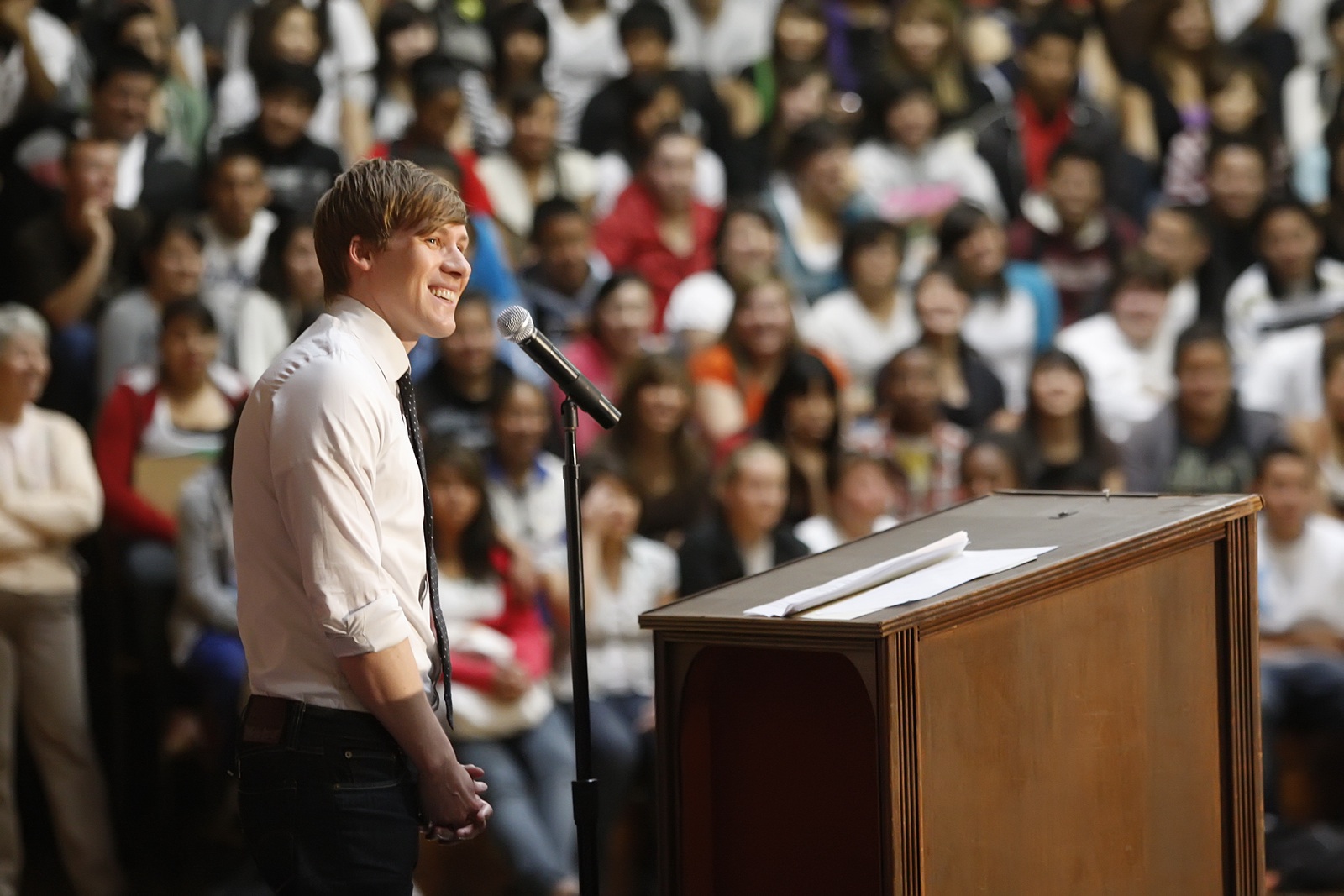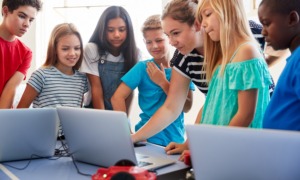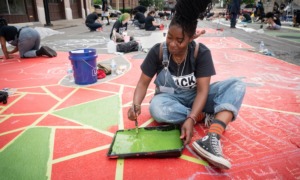As a high school student, Brian Wenke was harassed and bullied before he even realized he was gay. “Jocks” slammed him into lockers. He was called “faggot.” One night, some other kids even broke into his house when his parents weren’t home. They threatened him but left without doing physical harm.
Today, Wenke would defend himself and his family “to the death” if someone broke into his house, he said, but as a boy, in the early 1990s, he was confused about his sexual identity and cowered before the intruders.
“When you experience bullying, it can be terrible,” he said.
Today, Wenke is executive director of the It Gets Better Project, a national nonprofit that communicates hope to LGBT youth by connecting them through videos on social media. Connecting LGBT youth with people who have lived through some of the same experiences of “otherness” and harassment can strengthen young people and offer them new ways to cope.
The It Gets Better Project shares the stories of LGBT people and their allies “to empower LGBT youth to seek out their authentic selves,” Wenke said.
The organization was launched in September 2010 with one video online. Today it has an archive of more than 60,000 videos and a huge social media campaign to gather and disseminate them.
“We are a community to support [LGBT youth] in their darkest hour,” Wenke said.
Connecting with other people’s stories and hearing their message of support, he said, makes an impact.
McKenna Palmer, for example, went to work as an intern at the It Gets Better Project and made a video telling her own story.
“I found a community that I had never expected right in my own city,” she said in the video. “I found kids at my school who were scared to come out.”
But they found joy and comfort in connecting, she said.
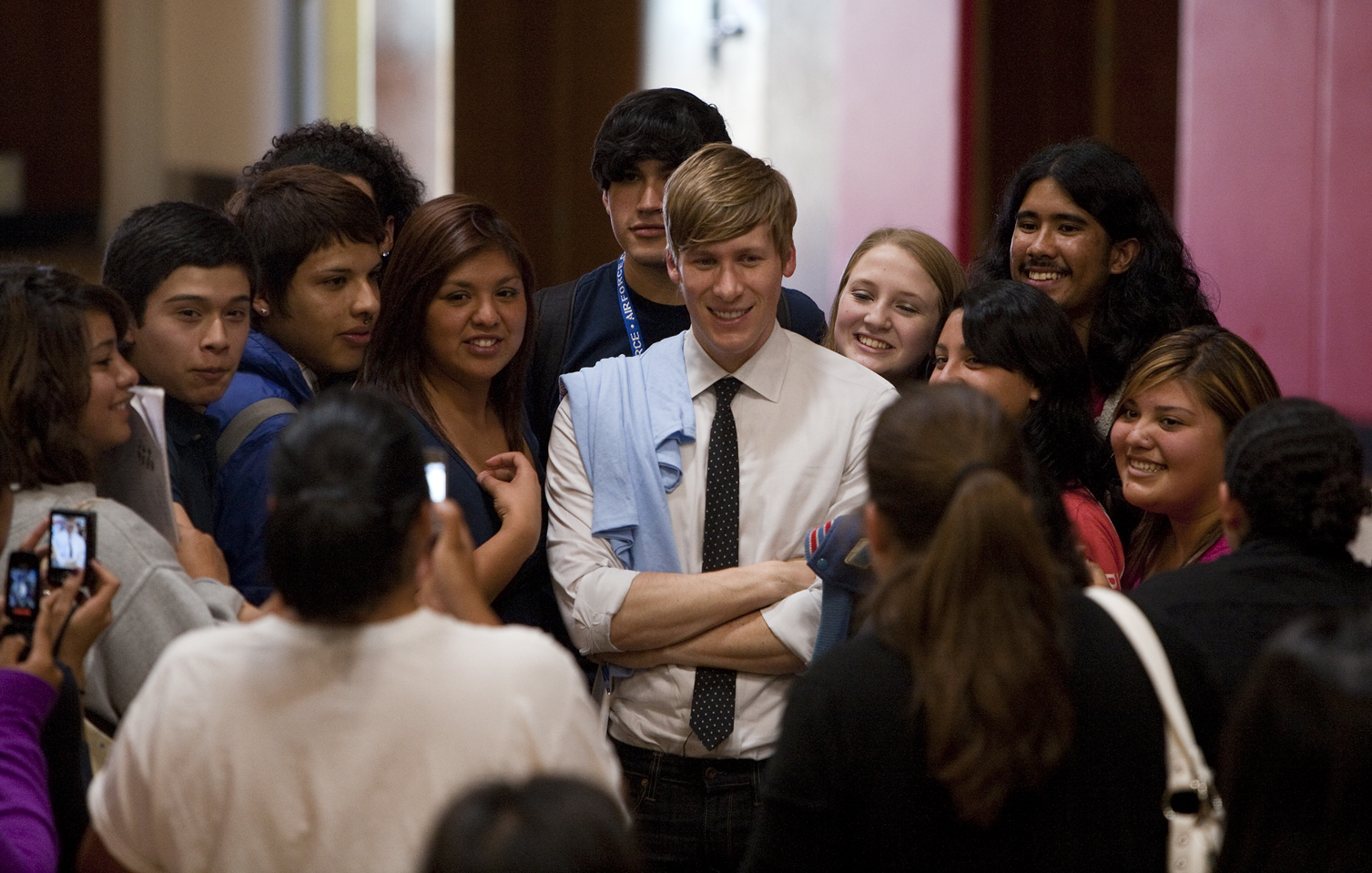
Photo by Richard Green
.
Ryan Casattas, a transgender singer-songwriter, actor and activist based in New York, said in his video — made and posted about two years ago: “I remember watching the videos in high school and also after high school and thinking ‘Wow, there’s actually hope for me out there, and I could be successful being queer.’ ”
By January 2017 his video had 13,662 views.
President Barack Obama also posted a video.
“What I want to say is this: You are not alone: You didn’t do anything wrong,” Obama said in his video. “… And there’s a whole world waiting for you filled with possibilities. There are people out there who love you and care about you just the way you are. You’ve got to reach out to them… It will get better.”
Does it really get better?
Life really does get better for most LGBT teens as they get older, say researchers at Northwestern University.
They followed 231 LGBT 16- to 20-year-olds, contacting each of them six times during a 3½- year period. Researchers published their results in the Journal of Adolescent Health in March 2015, showing, in general, victimization and psychological distress decreased as the youth grew older.
Wenke says one reason the change happens is because “as we age, we learn to recognize the bullies and also to find people who share our value system and can support us.”
“We learn resilience as we age,” he said.
While the It Gets Better Project connects people through social media, other organizations make in-person connections.
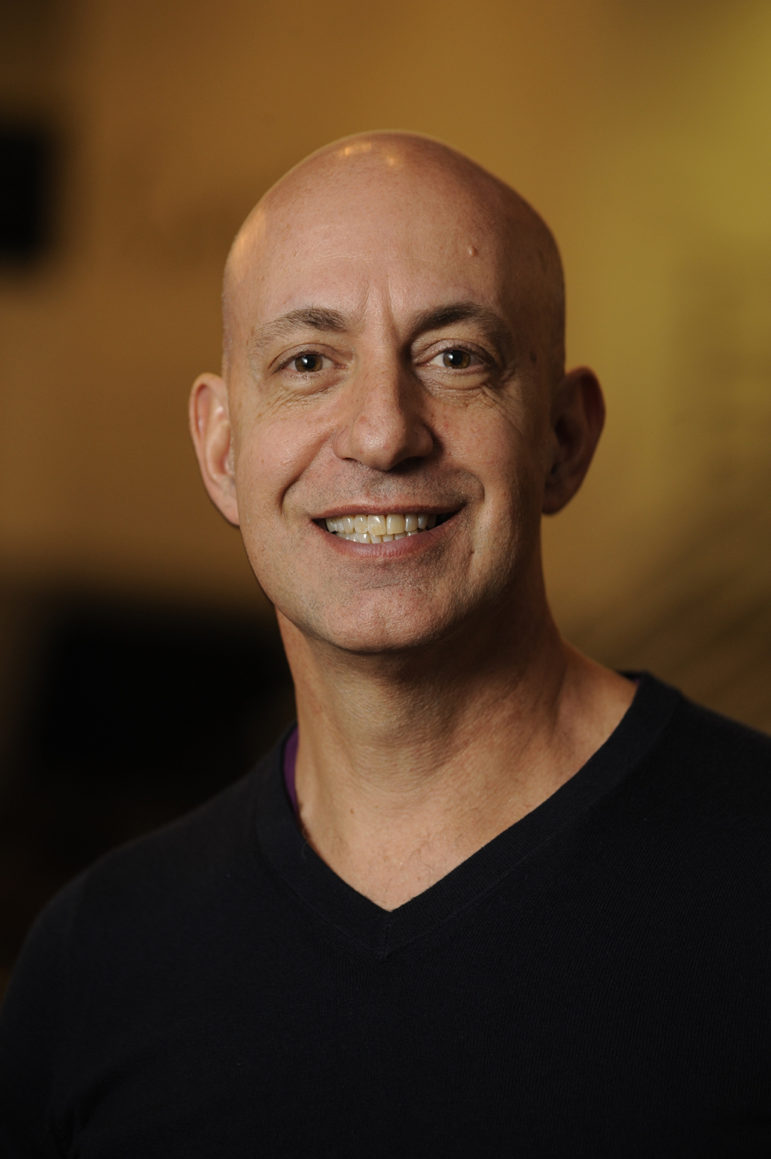
Leo Preziosi Jr. founded Live Out Loud to empower LGBT youth by connecting them with good role models.
Mentoring relationships may play an important protective role for LGBT young people, according to Christian L. Rummell, a senior researcher with the American Institutes for Research, a nonprofit behavioral and social science research and evaluation organization.
Rummell noted that few empirical studies have been done on the impact of mentoring LGBT youth, but it’s likely that this strategy can help young people meet challenges such as not being accepted by peers and parents.
Informal mentoring relationships may also encourage positive educational outcomes for youth, he wrote in his September 2016 report, Mentoring Lesbian, Gay, Bisexual, Transgender, Questioning, Intersex and Gender Nonconforming Youth.
In addition,“mentors who take advocacy roles may be able to offer emotional, informational, and interpersonal support for LGBTQI-GNC youth in ways that provide protection from risks associated with stigma and victimization,” Rummell wrote.
Connecting with role models and a community
For Jane Demarest, 18, life got better in this year as a first-year college student because she saw a visible LGBT community. It also got better, she said, because adults connected with her.
Two years ago, she was a junior at Eleanor Roosevelt High School in New York City when Leo Preziosi Jr. came to speak at the after-school Gender and Sexuality Alliance (formerly the Gay-Straight Alliance).
Preziosi spoke about his own life and work as a fashion designer, marketing consultant and founder of a nonprofit called Live Out Loud.
He started the organization in 2001 to support and empower LGBT youth by connecting them with good role models and affirming experiences. He wanted them to have a successful future.
“I was getting ready to apply to art school at that time,” Demarest said, “and he was super inspirational.”
She kept in touch with Preziosi and met others in Live Out Loud.
It was powerful to see LGBT adults who were happy and comfortable with themselves, she said. It was also powerful to see them in marriages and committed relationships.
“They were role models,” she said.
Live Out Loud sends volunteers to 25 New York and New Jersey schools once each month to talk with students. Sometimes volunteers address an assembly of students, at other times they visit a club or student government association.
The organization also created the Homecoming Project, which recruits LGBT adults to return to their former high school to speak to students. To date, 134 adults have returned to their schools in 26 states, Preziosi said.
Live Out Loud takes groups of students to meet with businesses and see successful LGBT professionals. This spring, students will visit Microsoft, BET, Disney and the media and internet company IAC.
It’s about helping young people “realize their full potential,” Preziosi said. “We’re about being in conversation.”
Recently, Demarest had a conversation with Presiozi about an incident that disturbed her.
“A lot of my friends and I use ‘they’ and ‘them,’ [pronouns] to refer to themselves instead of ‘he’ or ‘she’,” Demarest said. But a student she knew made fun of that practice.
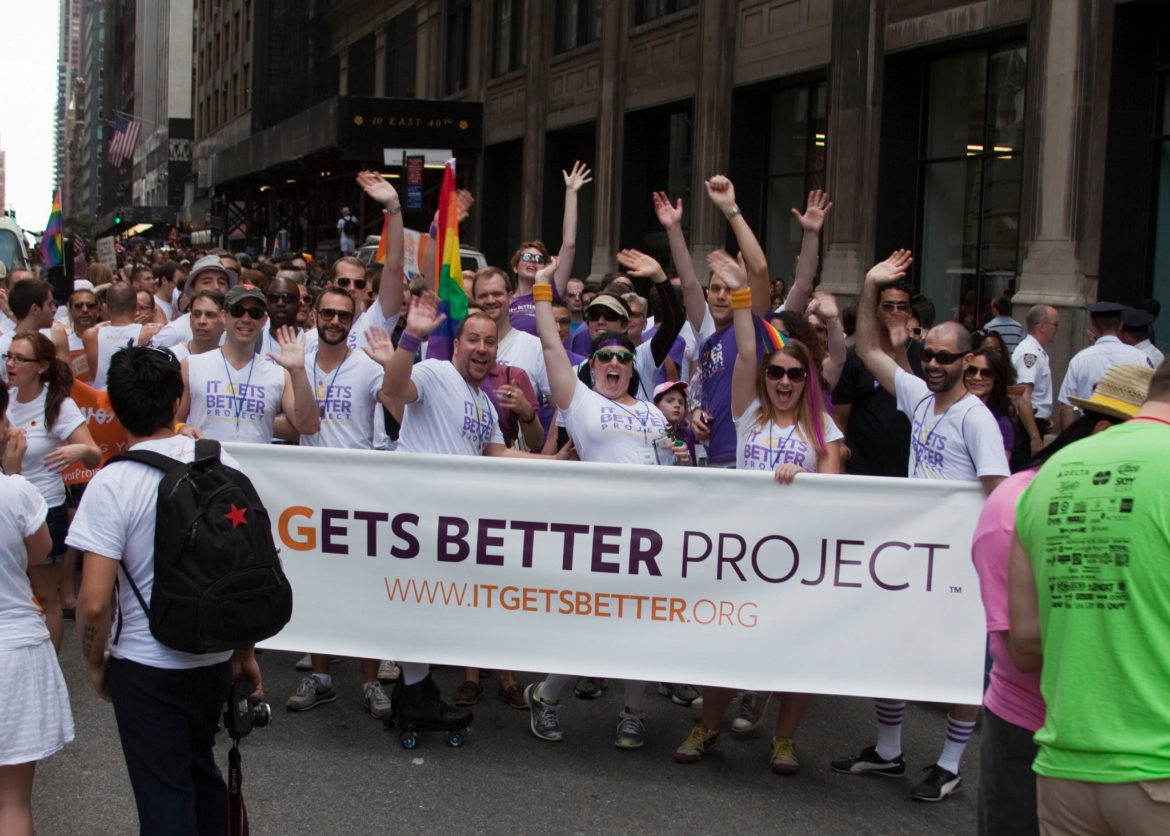
Photo courtesy of It Gets Better Project
A group from Los Angeles-based It Gets Better Project marches to demonstrate gay pride in New York City in 2011.
Preziosi responded that it can sometimes be valuable to “take a step back” in such situations. It’s important not to internalize what people say to you, he said.
Demarest had not previously considered the idea of reacting less, but she found Preziosi’s advice helpful.
Equally, however, Preziosi stressed the importance of self-care and attending to her needs, she said.
Demarest, now studying illustration at the Pratt Institute in New York, went back to speak at her high school in January.
High school can be a difficult time of transition, she said. “It does get better,” she said. And it’s good for students to connect with someone’s who’s been through it, she added.
Just as Preziosi had been a role model to her, she was a role model to younger students.
For Preziosi, it’s all about getting LGBT young people “to live to their full potential and not be afraid.”
“We all go into these dark places [at times],” he said. It’s important to help young people learn how to manage those difficult times.
Practices for youth-serving organizations mentoring LGBT youth
Learn the definitions behind the acronym and become culturally and linguistically competent when designing and delivering services. One source is the Guide for Understanding, Supporting, and Affirming LGBTQI2-S Children, Youth, and Families, published by the American Institutes for Research.
Make sure your program culture and materials are welcoming to this population.
Consider recruiting mentors with lived experience in this area.
Set or augment confidentiality policies to address information sharing around the topic of sexual orientation and gender identity.
Train mentors working with lesbian, gay, bisexual, transgender, questioning, intersex, and gender nonconforming youth in areas such as identity development, engaging with parents and referring youth to services.
Advocate for these youth in your community and family.
When possible, contribute to the research base by submitting information about your program’s strategy or impact to databases such as the National Mentoring Research Center’s “What Works in Mentoring” collection.
Source: Mentoring Lesbian, Gay, Bisexual, Transgender, Questioning, Intersex and Gender Nonconforming Youth, American Institutes for Research
Go to the OST Hub for more resources on working with LGTBQ youth.


